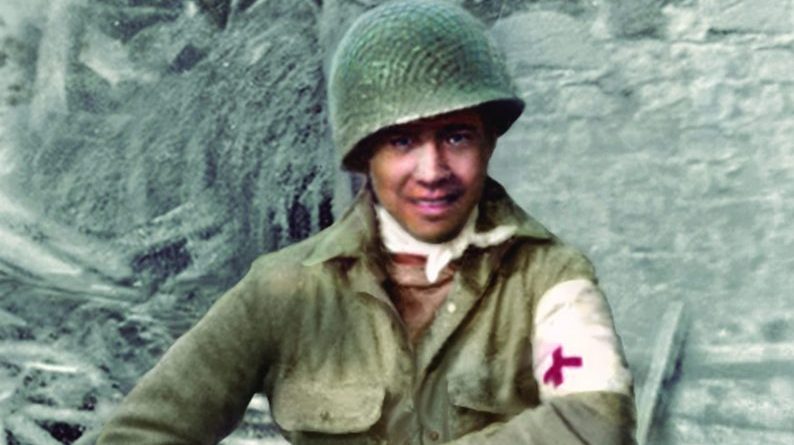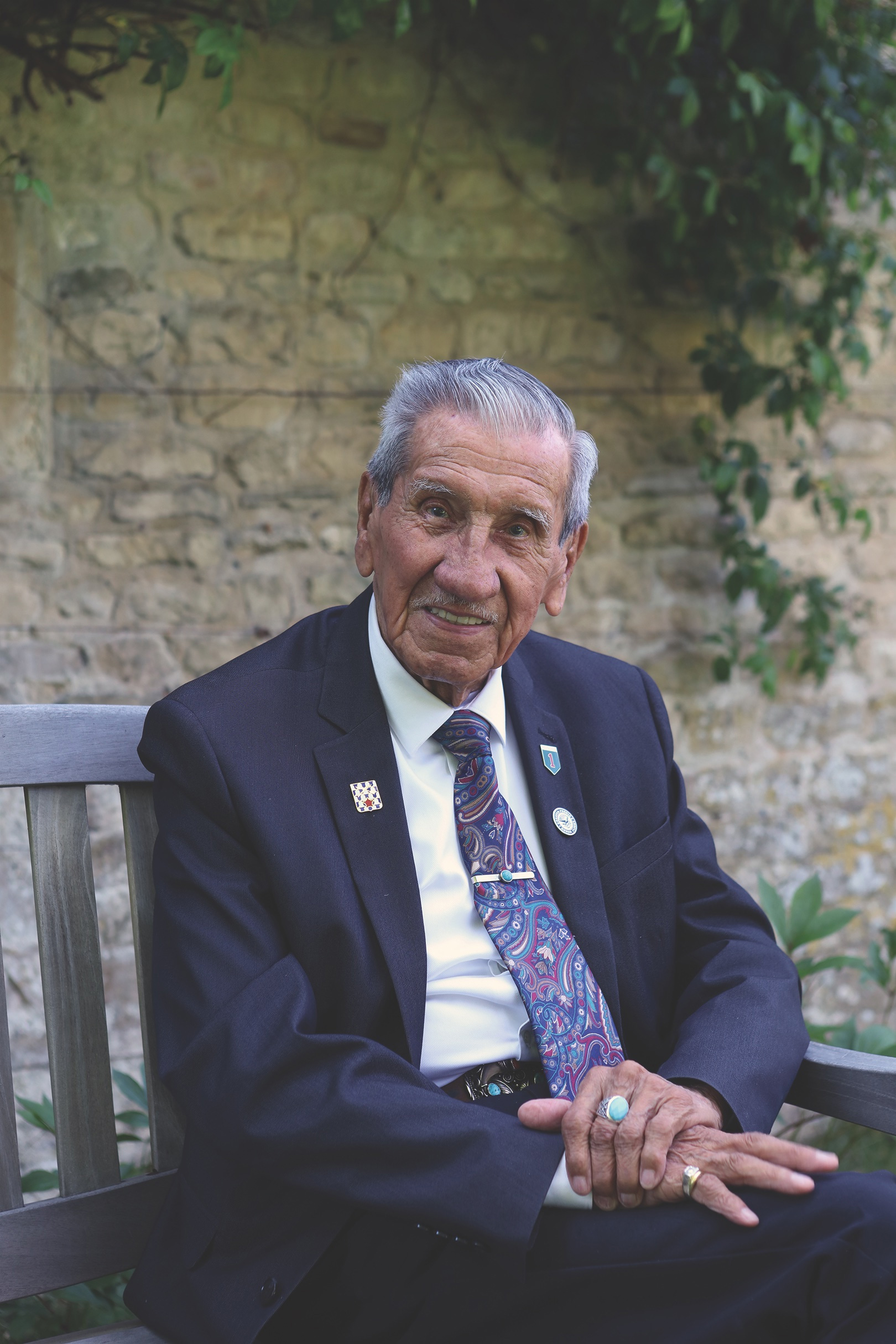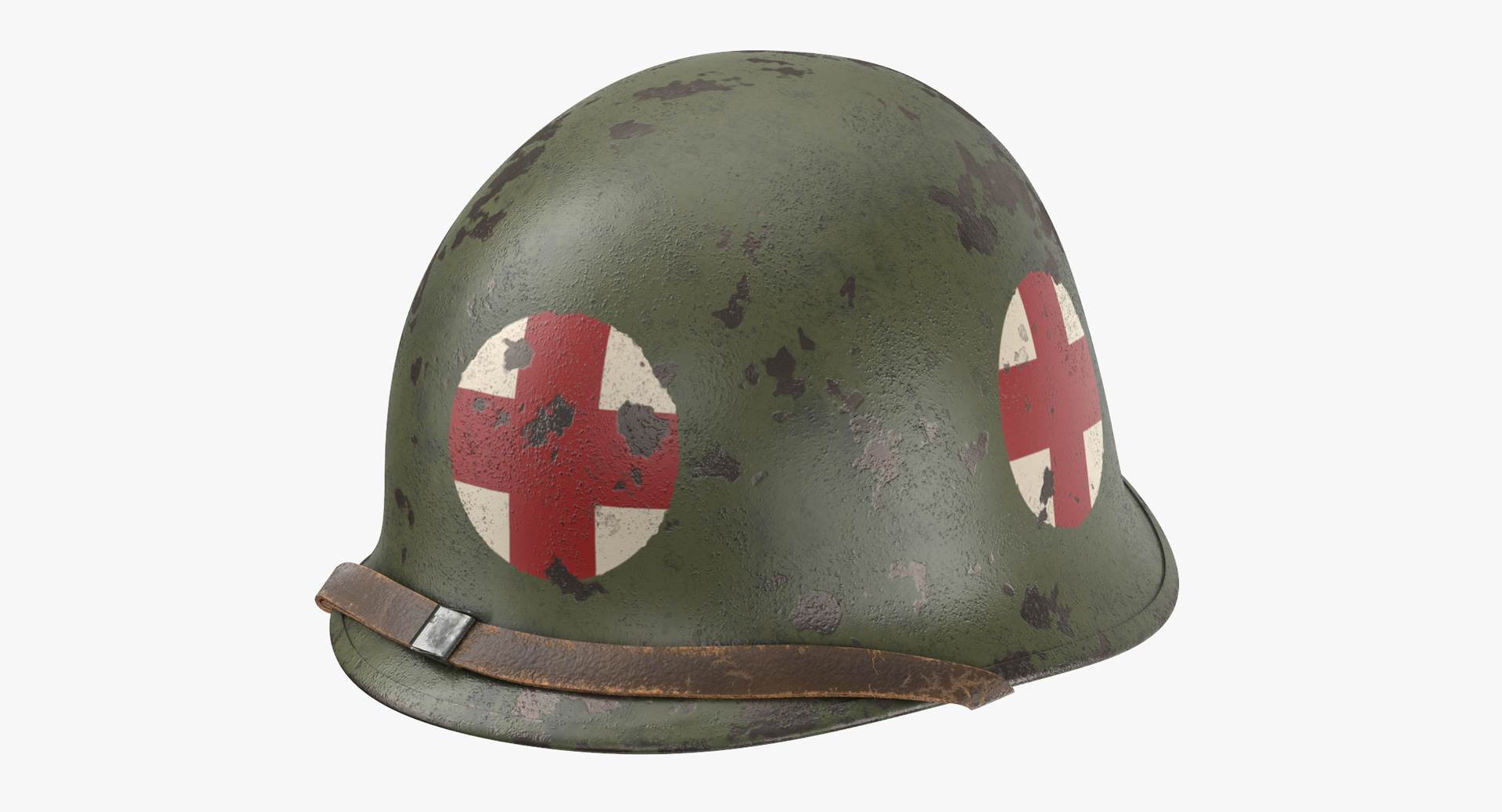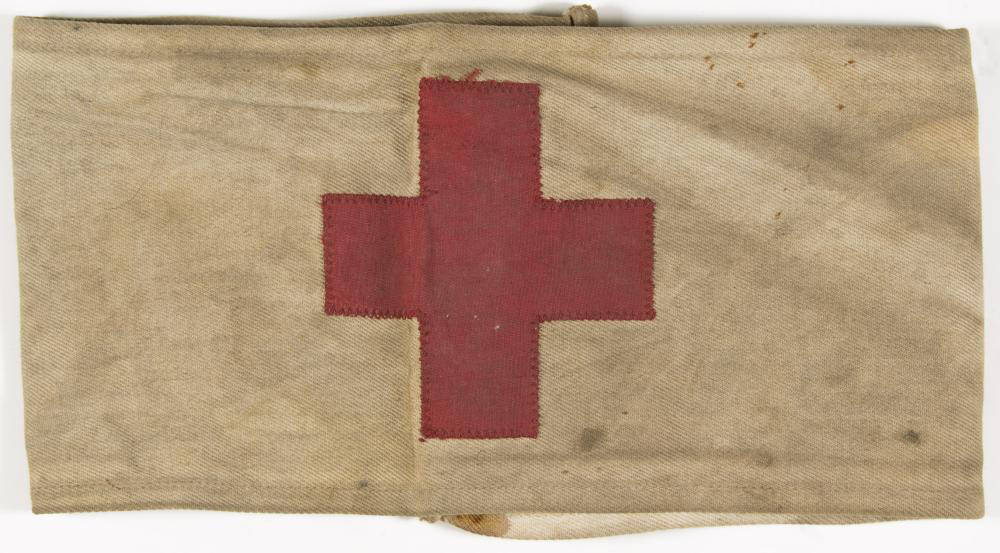Charles Norman Shay
RESPECT D-DAY HERO
AUGUST 22, 2022

Charlens Norman Shay, on June 6th 1944, 20 days before celebrating his 20th birthday, served as combat medic with the 1st infantry, “The Big Red One”, one of the first units to land ashore on Omaha Beach on D-Day. It was his first day of combat in his life. On June 27th, 2024 , he celebrated his 100th birthday. He is probably the last Native American veteran of D-Day landings.
He doesn’t want to leave his comrades behind, so he has chosen to live 20 kilometers away from the Omaha beach, near Caen.
He immediately accepted my request to interview him. He answered all my questions the very next day, with the speed of 19 year old Charles, but he kindly reminded me:
«Dear Panayotis, I read your email but I’m now 98 years old and the list of questions is very long, so I will answer briefly».
I have read his answers countless times. In this way I feel like I have been enabled to touch a sacred ark that not many have had the chance to visit. There are other times, during which I feel like I have landed on Omaha beach and I am pinned down by the everlasting burst of machine guns. I read every word twice. First I understand the etymological meaning and after I try to spot a hidden meaning. Because there is.That is why I go through the page of his book, “Project Omaha Beach”, time and time again. Every time I try to decode them, I discover a new dimension of the mental strength that allowed humanity to prevail in this atrocious war.
Mr Shay when you were asked to enlist, did you have time to think before doing it as a volunteer? Your mother was an activist and believed that her four sons should not serve in the US military if they could not vote. With what feelings did you accept your enlistment? With hesitation, enthusiasm or fear?
I did not enlist, I was drafted as I followed my mother’s thoughts.
something BIG
was coming.

Did the doctor’s specialty have anything to do with your treatment as a native or was the choice unfavorable? How long did this training take and what did it include?
I was not a doctor but a combat medic. I did not choose to become a medic but was designated to be a medic. I took my basic training and then was trained for 6 weeks to become a medic. I thought I would work in a field hospital but it did not happen, i was always treated the wounded on the front line, all the way to Germany where I became a POW.
During Operation Tiger, in April 1944, 750 Americans were killed, and you were told to keep it an absolute secret. You were in the area without getting involved. You experienced it up close. Did it give you the impression that it was the worst that could happen?
We were told about Operation Tiger and we knew what happened but it was strictly forbidden to talk about it ; We knew something BIG was coming.
Ever since I saw the documentary about the landing, the image of an American soldier smiling bitterly but still smiling inside the transport ship has shocked me. How long before engaging did you learn about the truth of this operation, the danger, or the chances of survival?
We knew it would be tough. We were concentrated on our mission. We learned about the mission 2/3 days before embarking.
You have mentioned that on the eve of D-Day, while on the ship you had a pleasant meeting with a fellow Penobscot, Melvin Neptune. What did that mean to you?
It was good surprise for me. Melvin had more experience than me. It was my first combat experience. We spoke about the life on the reservation and some of our friends.
No one can understand what you experienced even if you find the words to describe it to us yourself. I know that’s why you didn’t talk until 2007 (that’s when I was born). If you can bear it, can you tell me, if you remember operating with your mind or only with your instincts?
I was 100% focused on my job and was doing what I had been trained for.

You say it was thanks to your mother’s prayers and luck that you survived the war. Knowing the atrocities of the Nazis, when you were arrested did you think your luck had run out?
We knew the war would be over soon, so we had to stay strong and once again do what we have been trained. We had been told to tell Germans only our unit, our serial number and rank. This is the only thing I said during nights interrogations. About 6 weeks after I got captured, we woke up in the morning and all Germans left the camp. We have been liberated a few hours later by another American unit.
Can you tell us about the ritual that you honor your partners with each year on the Omaha coast? Can you tell us your prayer or some words that a prayer like this can have?
I’m praying according to our native rites and tell my friends we never forgot them.
Traumas are sometimes able to be overcome, sometimes not. Did you overcome them? If so, do you remember when you felt like the memories were not chasing you so hard anymore?
I still have bad dreams and often think to all my comrades.

After WW2, how did you cope with fighting again in Korea?
When I came back to the States in 1945, I did not find any interesting job ; Natives were still facing segregation in civilian life, I did not have the right to vote. That’s why I decided to re-enlist in the Army. A few months later, I was drafted…and sent to Japan for training and then to Korea.
In the 20th century humanity experienced two devastating and merciless world wars. However, peace does not seem to be a given value for everyone. Did the Russian invasion of Ukraine surprise you? Will we ever learn to love humans more than to fight them?
I was invited in Russia in 2020 and we were warmly welcomed. Invasion of Ukrain surprised me at the beginning. But know, I’m more aware about geopolitical aspects and I have to say it was planned since years.
In Normandy you experienced things that for many years you didn’t want to talk about. What gave you the strength to live on these shores in recent years?
I feel very comfortable living in Normandy now and I’m able to visit the Cemetery on a very regular basis. Also, Normandy is a very nice area and I enjoy life.
If you want, could you talk to me about your beloved wife? She certainly gave you strength in your life and joy.
Yes, my wife Lilly was a beautiful woman and we had a good life.
Can you tell me about your culture, in which you dedicated the rest of your life saving it and transmitting it in the next generations?
I’m involved in different programs like the Freedom Prize organized by the Normandy Region. Also, I have a memorial on Omaha Beach where we have annual ceremonies with many Native Americans veterans.
